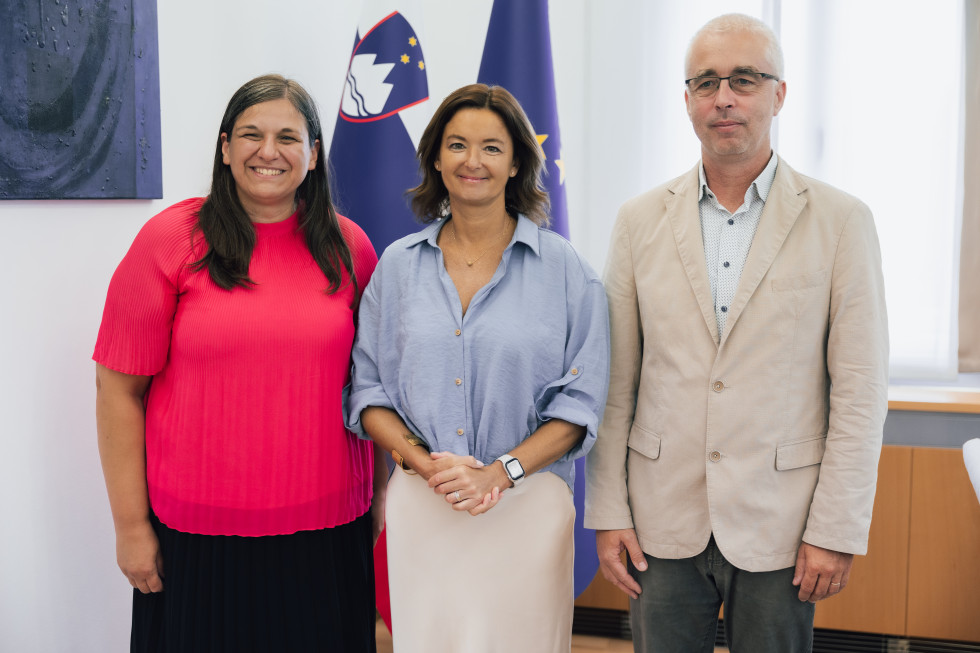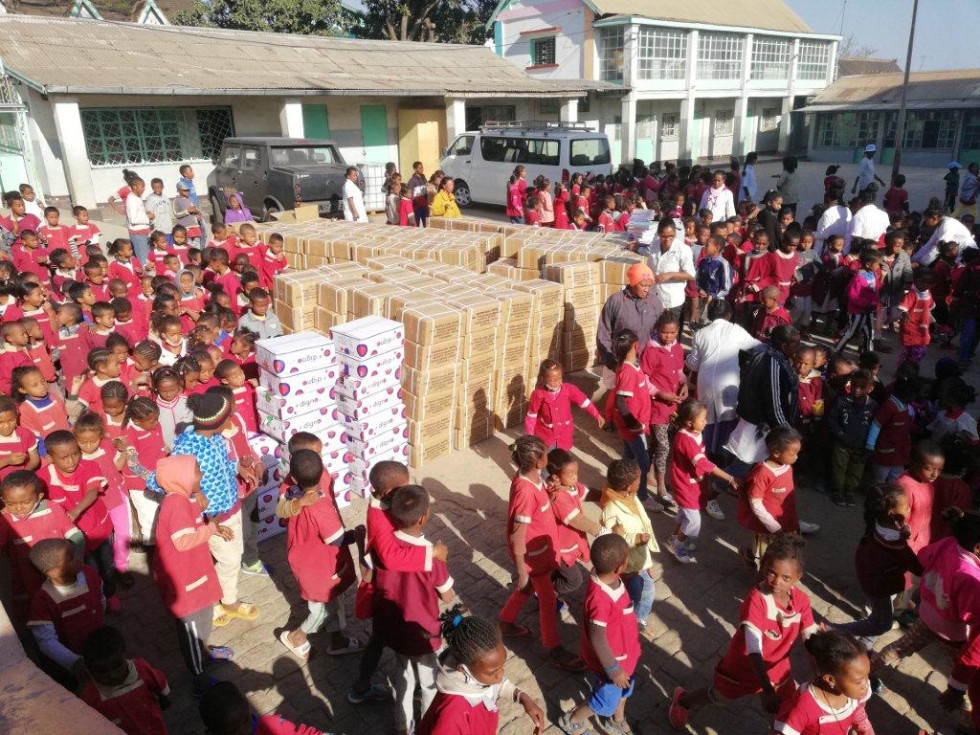Fajon: 'Strategic Partnership for Humanitarian Response - fast and effective aid when needed most'

Minister Tanja Fajon, Secretary General of Slovenian Karitas Peter Tomažič and Head of International Aid Jana Lampe | Author Ministrstvo za zunanje in evropske zadeve
Minister Fajon, Secretary General Tomažič and Head of International Aid Jana Lampe first discussed the humanitarian assistance provided under the previous strategic partnership. From 2021 to 2023, Slovenian Karitas implemented 15 emergency response, rehabilitation and reconstruction projects valued at almost €1.9 million (in Ukraine and Moldova, Madagascar and Haiti, Ethiopia, Syria, Turkey, Malawi and Morocco). ""So far, more than 54,500 vulnerable people from over 10,300 households have received humanitarian aid and 2,000 vulnerable children and adolescents have received social services annually through the implmented projects, testifying to the reliability of the Slovenian Caritas as a partner and provider of humanitarian aid. This is of great importance for Slovenia so that it can quickly help in crises, which are unfortunately becoming more and more frequent and of a greater magnitude," said Minister Fajon, adding that Slovenian Karitas has always managed to complement the Ministry's resources with contributions from donors, including by involving the private sector, and strengthened solidarity by raising the awareness of the Slovenian public.
After the meeting, Secretary General Tomažič stressed that Slovenian Karitas was very pleased with the Strategic Partnership Project: 'This has been a very good and effective instrument that allows us to be the first and to help in crisis hotspots very fast. Our organisation has good contacts with the local population, which allows us to respond to people's needs with projects and assistance."
Slovenian Karitas was selected as the Ministry's strategic partner in the field of international humanitarian aid for a 5-year period from 2024 to 2028. Under the partnership, financed by the Ministry with a minimum of €1.3 million over five years, emergency humanitarian aid will be provided to countries affected by large-scale natural or other disasters along with activities to reduce vulnerability and the risk of crises. Special attention will be paid to reconstruction and rehabilitation, and to vulnerable social groups, with a focus on women and children. Thanks to the strategic partnership, activities can be implemented to help victims on the ground, in a specific area and according to their current needs. It complements the humanitarian aid Slovenia provides through international organisations or in-kind donations.
Currently, preparations are underway for the first humanitarian projects under the new partnership: the construction of physiotherapy facilities and the renovation of the kitchen at a centre for disabled children and young people in Zarichany, Ukraine; a 10-day seaside holiday for Ukrainian children, who will also receive psychosocial support; food security support for children in Madagascar; and assistance after the devastation caused by Hurricane Beryl in the Caribbean. Minister Fajon expressed her satisfaction that Slovenian Caritas is also planning to help the Palestinian people in Gaza, including a project for the rehabilitation of children from Gaza at the University Rehabilitation Institute Soča, in which it is cooperating with the Danilo Tűrk Foundation, which has many years of experience in this field.

Demonstration of the Slovenian food aid project | Author Ministrstvo za zunanje in evropske zadeve

